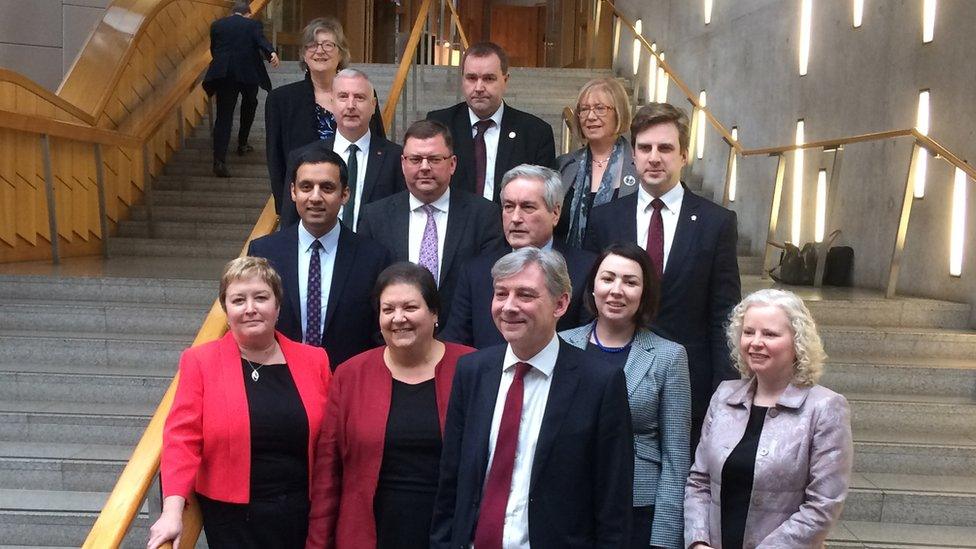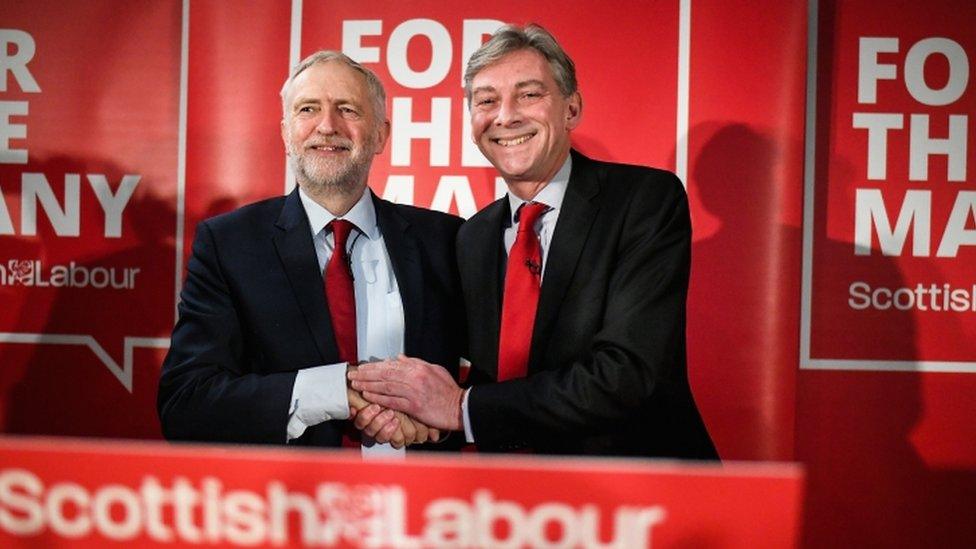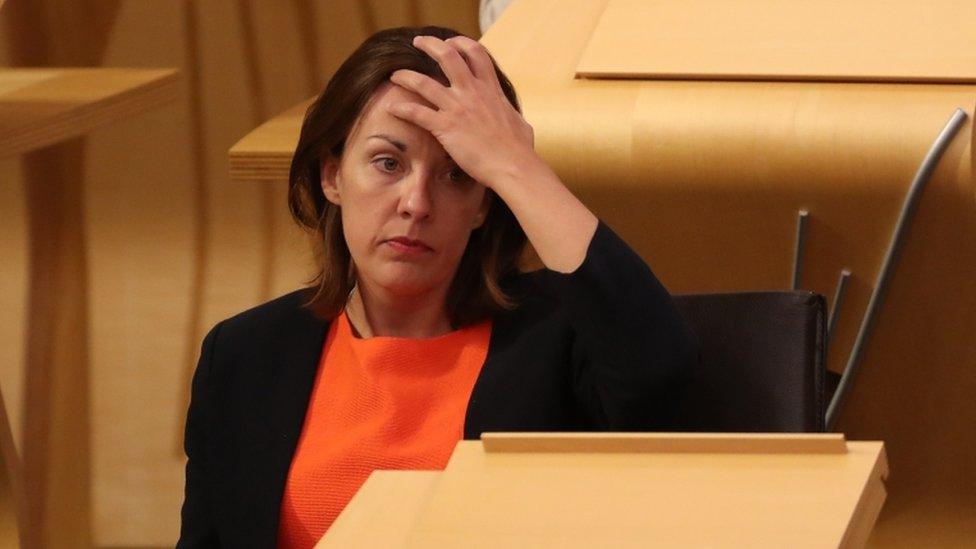Coalitions of the (mostly) willing
- Published

Richard Leonard's new top team includes his former leadership rival Anas Sarwar
The Thought for the Day is that all political parties comprise coalitions of the more or less willing.
To be frank, I may have mentioned this Thought once or twice in the past. If I have, do let me know. Actually, don't - but please content yourself that the offer was, briefly, there before being cruelly snatched away once more.
Said coalitions of the more or less willing stay in existence with one purpose. To succeed, to win power.
Sometimes the coalition comes under such strain that it fractures. This may occur when one faction gains dominance, prising out rivals.
Or, perhaps more commonly, it may happen when a divisive issue assumes more importance for one faction than the need to preserve a façade of unity.
The European Union is one such issue. Just ask Theresa May, David Cameron and John Major. But, down through history, that role has been occupied by Empire, Ireland, free trade and, in various guises, the constitution.
Labour remains a coalition, although the description "willing" stretches credulity just a fraction, especially at Westminster. Those who oppose Jeremy Corbyn within the PLP in the Commons, and witness the left-wing advance of Momentum, are, to some extent, staying put out of determination, torpor, ennui or habit - or, indeed, a combination of all these factors.
They cannot quite believe the speed or thoroughness of the Corbynite take-over. Equally, they cannot, for now, think of anything to do to counter that direction.

Mr Leonard is a longstanding supporter of UK party leader Jeremy Corbyn
Richard Leonard supports and admires Jeremy Corbyn, so it is no surprise that his new senior front bench team at Holyrood contains an evident and demonstrable shift to the left.
But the atmosphere appears discernibly different in Scotland. As one senior figure told me, the divisions were never as stark and the resolve to co-operate is more evident.
Richard Leonard himself is a new face in the top team - and is joined by Neil Findlay, Elaine Smith and Monica Lennon, key figures from the left who backed him during the leadership contest.
(Incidentally, Mr Leonard bills this top team Labour's Shadow Cabinet, as have his predecessors. We tend not to use that phrase, regarding it as derived from Westminster dualist tradition and thus inappropriate in Holyrood's multi-party set-up. But no matter.)
However, the Leonard top squad also finds room for seven returning senior front benchers, including Anas Sarwar who contested the leadership and Jackie Baillie who was critical of the Left during the campaign.
There are also top jobs for Daniel Johnson and Colin Smyth, who backed Anas Sarwar.
Now, this could be faute de mieux. The Tories certainly think so. However, a more charitable interpretation might be that Mr Leonard recognises the relative vulnerability of his party - placed third at Holyrood - and prefers an attempt at consensus to provoking internal warfare.

There is no place in the team for Mr Leonard's predecessor Kezia Dugdale
Does that mean that the centre and the right of the Labour Party is resigned to the Corbyn/Leonard axis? It does not, at least not in the medium term. Discussions continue, at Westminster, at Holyrood, over how change might be effected, again in the medium term.
But, for now, accommodation to reality is the rule. And Labour will be judged by performance: whether it can confront the SNP, sideline the Tories and offer the people a policy platform that can command respect and, eventually, votes.
Mr Leonard told me that was certainly his declared aim. He wanted a top team that, collectively, could present a "distinctive Labour alternative".
A key test, given the Budget and the new tax powers, will self-evidently be finance. James Kelly has been given that role. He will be challenged - not least by political rivals - to spell out what Labour means, precisely, by progressive taxation.
And then there is Brexit. There is always Brexit. That issue has been handed to Neil Findlay, a left-wing champion. How will Labour's stance evolve? Towards single market membership, as Anas Sarwar continues to advocate? Or towards speedy exit?
There is no room in the top squad for Kezia Dugdale, after her sojourn in the jungle. Nor is there a place for Alex Rowley who has stepped down as deputy leader. A sexual harassment complaint against him is not proceeding and has been discharged. Mr Rowley vigorously protested his innocence.
I drew these - obvious and expected - absences to Mr Leonard's attention. With a smile, he assured me that he was contented with the team he had.
PS: On Saturday, I followed the mighty United to Dumfries where they were scheduled to contest Queen of the South. They have an artificial pitch which is commonly described as "all weather".
The match was abandoned at half-time. Owing to the weather.
I offer no further comment, other than to thank the kindly Doonhamers who commiserated and wished us a safe journey back home.
- Published19 December 2017
